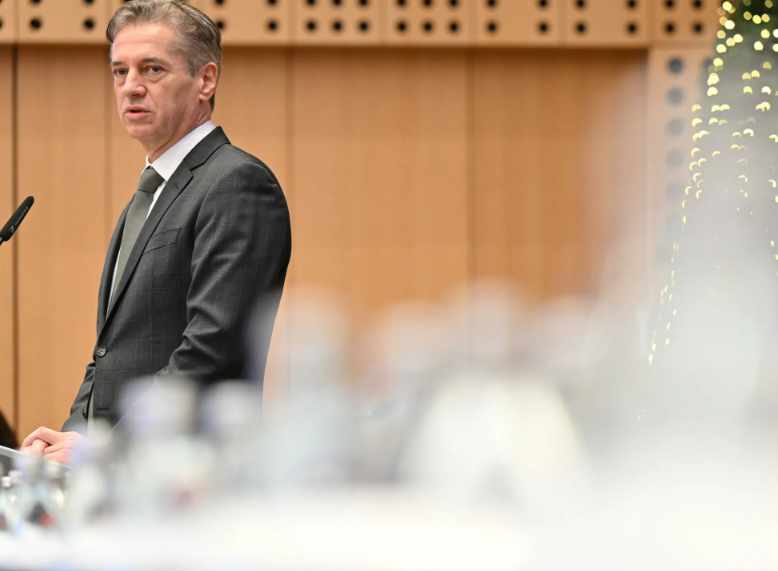“I really don’t see how I would benefit from lower taxes, except that I would have more money in my bank account to spend on perhaps even more stupid things,” is a past statement by Prime Minister Robert Golob, which many people find difficult to understand. Especially nowadays, when, in addition to the costly energy and food prices, we are facing other financial burdens, too. From the 1st of January onward, we will have to pay a higher contribution for the national media outlet Radio-Television Slovenia (RTVS), as well as a higher compulsory healthcare contribution in the spring, and a long-term care contribution is coming in the summer. On top of all this, there is talk of introducing a property tax, and even a tax for dog owners.
Prime Minister Robert Golob had already promised tax increases before the last elections to the National Assembly. And shortly after coming to power, he delivered on this promise, as his government moved to abolish the income tax law of the previous – Janša government, which would have gradually raised everyone’s wages. Although we have recently heard lots of bragging that the harmonisation of income tax brackets and allowances will bring higher incomes (those earning the minimum wage would supposedly get 198 euros a year more, and those earning the average wage would get 113 euros a year more), the final calculation, when the higher or new tax burdens are added, shows that we will not be better off at all. Of course, we are not referring to those with high incomes, such as public office holders, who are looking at a 40 percent to 70 percent increase in their wallets as a result of the pay reform.
From the 1st of January onward, the mandatory RTV Slovenia contribution will amount to 14.02 euros instead of the current 12.75 euros. The compulsory healthcare contribution, which used to be paid to insurance companies on a voluntary basis, will rise to 37.52 euros in March from the 35 euros we pay at present. And, of course, there is also the long-term care contribution coming in June, for which employees will have to pay 1 percent of their gross salary, employers 1 percent of the employees’ gross salary; pensioners will have to pay 1 percent of their gross net pension and farmers and entrepreneurs 2 percent of their gross salary. The fact that the income of a person with an average salary (2,388 euros gross per month) will be more than 200 euros lower in the coming year is illustrated by a calculation by the media outlet 24ur, using the example of an average salary. This does not take into account the increase in the RTV contribution, nor the other announced taxes, of which there seems to be no end in sight.
In light of the situation we are witnessing, we are hardly surprised by the recent Vox populi public opinion poll for the newspaper Dnevnik, which showed that the proportion of pessimists, i.e. people who expect to live worse in 2025 than they did so far, has risen this year compared to last year. In light of Golob’s statement, which is difficult for many to understand (namely, “I really don’t see how I would benefit from lower taxes, except that I would have more money in my bank account to spend on perhaps even more stupid things.”), we turned to the columnist, analyst, professor and vice-dean of the European Academy of Arts and Sciences, Dr Boštjan M. Turk, for a comment on the issue of lowering the standard of living for citizens.
The reason for it is that we have not broken apart from our past
He explained that the matter here is very easy to understand and easily explainable. “This is about, as Milovan Đilas called it in his unforgettable book in 1957, the new class. These people are provided for. That is to say, Golob and this whole team or clique, whatever you want to call it, is provided for because it is fed from the state budget,” he explained, adding that this is a separate class of people, “perhaps a maximum of 5,000 citizens, most of whom are concentrated in the Ljubljana area.”
“That is what it’s all about, and everything else is just words that cover something up, that hide something, that lie about something.” As he explained, this is because Slovenians never truly broke apart from the past in 1990, unlike all other civilised nations that were occupied by the Soviet Union from 1945 to 1989, who did just that. “We did not do it. This keeps dragging on. It is a structure, a superstructure, that is built on all privileges. Just look at the media, who is appearing in the media, where they are appearing and how they are appearing, and all will be understood.”
According to Turk, another problem is related to the absolute media blockade. “We have never experienced anything like what we are experiencing now. Here, of course, I am referring to the mainstream media, not the alternative media or the media of the so-called democratic alternative. Every single thing is censored, additional pressures are exerted,” he pointed out the problem, adding that the left is the heir of the most totalitarian system in history, which is what it is constantly referring to, and everything that is happening is, of course, happening in this context.


